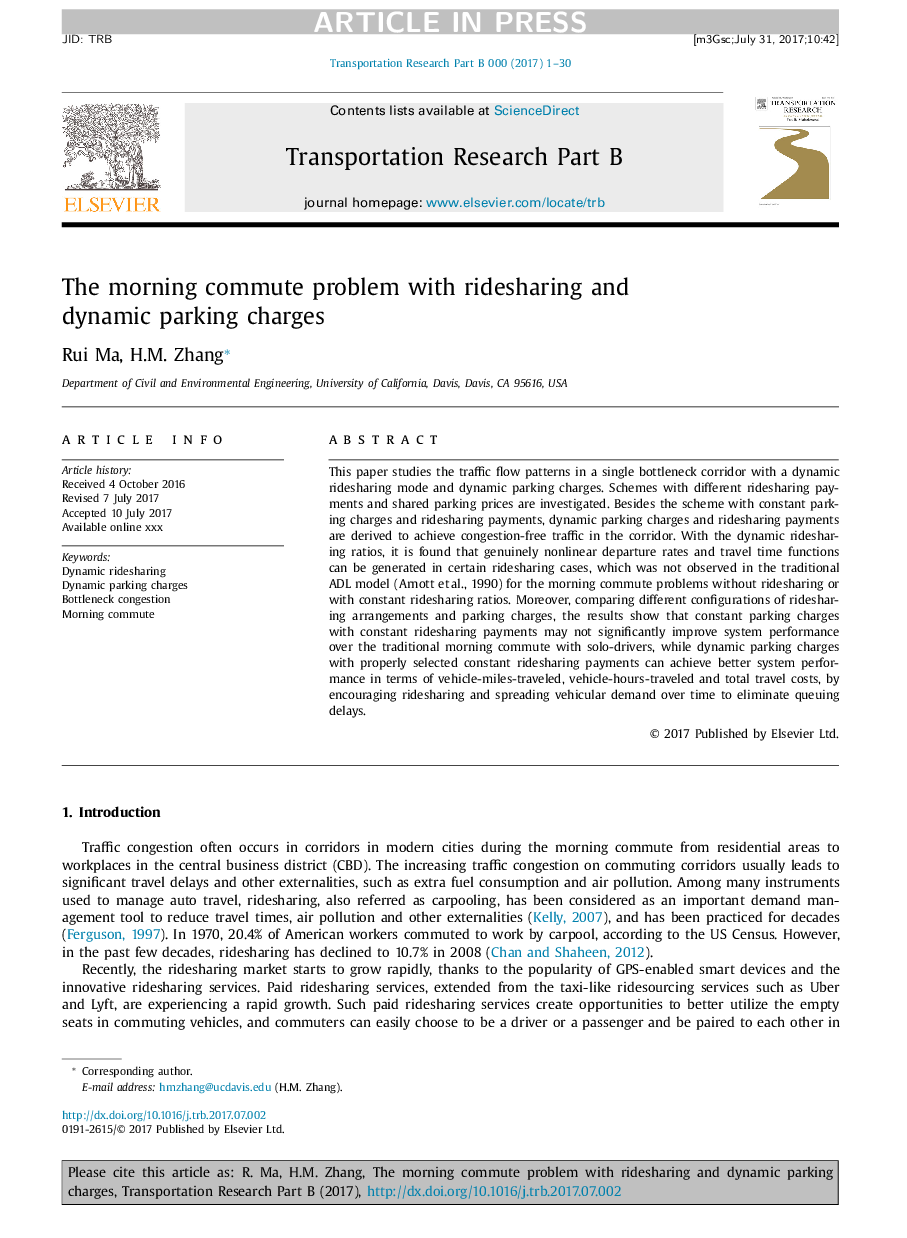ترجمه فارسی عنوان مقاله
مشکل رفت و آمد صبحانه با استفاده از رایانه و هزینه های پارکینگ پویا
عنوان انگلیسی
The morning commute problem with ridesharing and dynamic parking charges
| کد مقاله | سال انتشار | تعداد صفحات مقاله انگلیسی |
|---|---|---|
| 136554 | 2017 | 30 صفحه PDF |
منبع

Publisher : Elsevier - Science Direct (الزویر - ساینس دایرکت)
Journal : Transportation Research Part B: Methodological, Volume 106, December 2017, Pages 345-374
ترجمه کلمات کلیدی
پهنای باند پویا، هزینه های پارکینگ پویا، تراکم باریک، رفت و آمد صبحگاهی،
کلمات کلیدی انگلیسی
Dynamic ridesharing; Dynamic parking charges; Bottleneck congestion; Morning commute;

